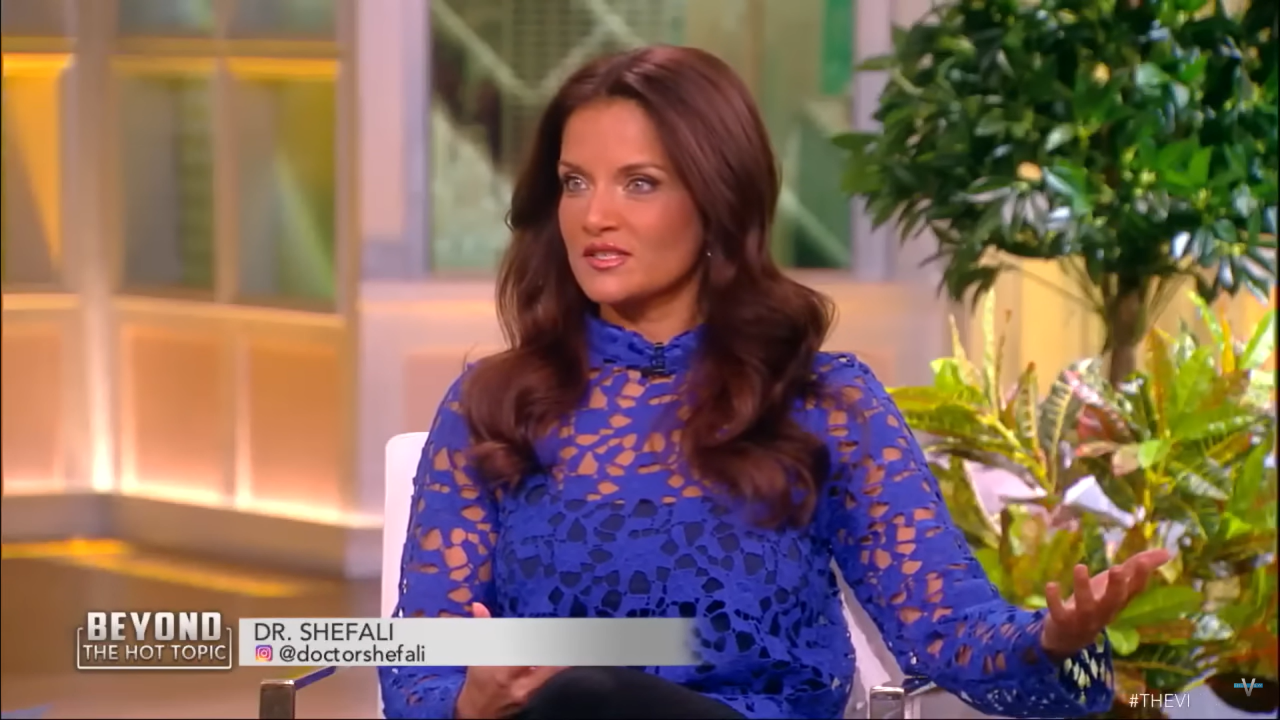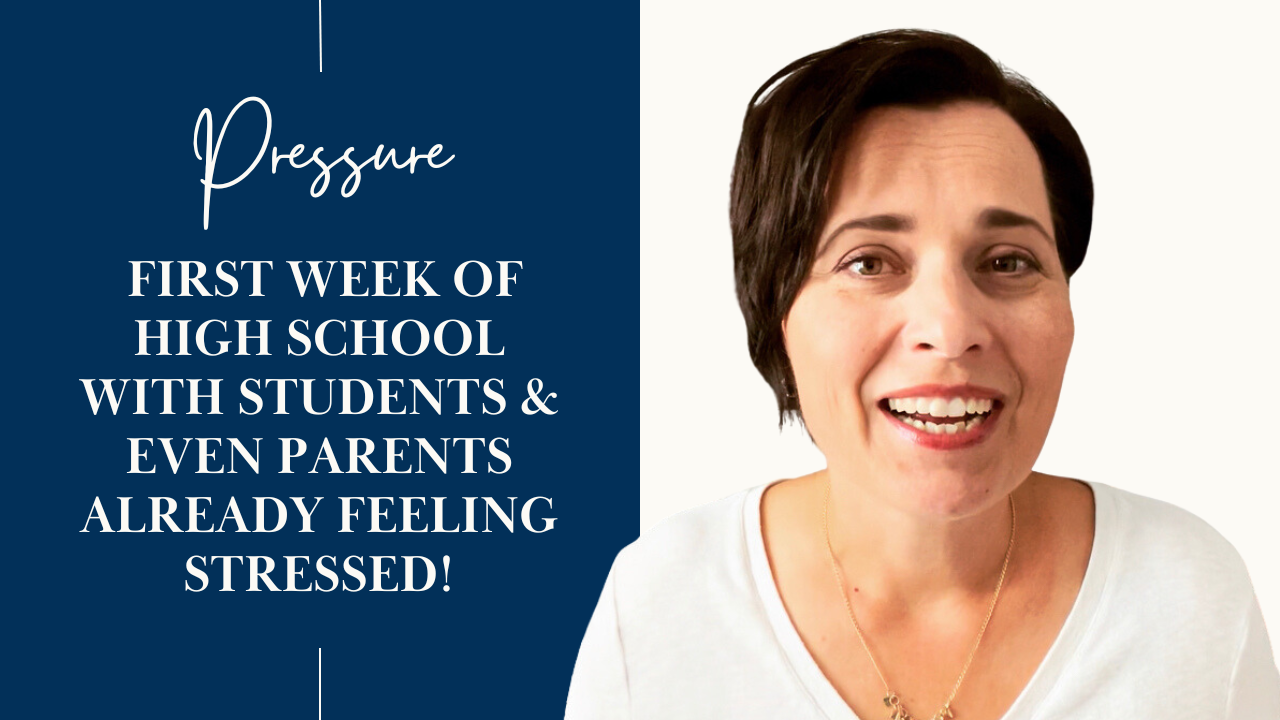Crisis of Connection with Dr. Shefali.
Apr 18, 2023
Show Notes :
Dr. Shefali Explains the Idea of Being a Conscious Parent and Discusses Her New Book, "The Parenting Map"
For parents who feel overwhelmed by modern parenting challenges, Dr. Shefali provides insight into what it means to be a conscious parent in her new book “The Parenting Map”. In this video we'll learn more about how being mindful can lead to deeper understanding between you and your children.
What is Consious Parenting? :
Conscious parenting involves being present during interactions with your child, attending not only to their words but also focusing on their feelings and emotions without judgment or criticism so that you can better understand them as individuals rather than merely as an extension of yourself. It also requires open dialogue between both parties in order for progress to occur regarding specific issues or concerns affecting either individual's development over time—allowing decisions made together to instill confidence in one another through fostering mutual respect throughout childhood continuing beyond adolescence into adulthood!
TRANSCRIPT :
Sara Haines:
Oprah calls her the best parenting expert she's ever heard, and today she's here to transform our thinking about how we approach raising our kids. Dr. Shali is an acclaimed clinical psychologist and New York Times bestselling author who's out with her new book, the Parenting Map. Please welcome Dr. Shefali.
Dr. Shefali:
Oh, thank You.
Sara Haines:
Now, I have worked with you before. I've read your first book, so I believe so firmly in much of your philosophy, but I want you to answer this. You pioneered the idea of conscious parenting in your first book, which was the conscious parent. Tell us what that means.
Dr. Shefali:
Well, this is a revolution in the way we parent. The old way that most of us were raised in was based on control, fear, shame, guilt. The children were to be seen, not heard. The parent knows best. Yep. Well that approach really raises children who suppress their authentic voice, who don't understand their inner power, and constantly are oppressed by an external force and con, and then go out into the world looking for that validation and approval from the outside. Well, most of us were raised that way. Yes. So conscious parenting disrupts that. It breaks that down and talks about the parent parenting themselves so that then when they come from wholeness, from presence, from attunement, then they can connect with their children and then raise children who are empowered, resilient, and who feel worthy.
Sara haines:
I love this cuz it was all about behavior modification. Shut the behaviors off. Exactly. But never address the symptom. Exactly. Which was exactly the feelings and the emotions. So
Dr. Shefali:
I often ask parents to go back to before they became a parent. So anyone here a parent? Raise your hand. So I want you to complete this sentence. I became a parent because anyone,
Audience 1:
I became a parent because God meant it
Audience 2:
To be. Okay. Okay,
Dr. Shefali:
I need a few more. Yeah. So complete the sentence,
Audience 2:
I became a parent so that I could see the next generation and continue the legacy of my
Dr. Shefali:
Family. Beautiful. Anyone else? Raise your hand. The lady behind or right there.
Audience 2:
Go
Audience 3:
Ahead. I became a parent because I wanted to raise children to become productive adults and good citizens for the United States.
Dr. Shefali:
Beautiful girl. Okay. Okay. Somebody behind. Yes.
Speaker 6:
I became a parent to create a family.
Dr. Shefali:
Okay, great. Okay, so one more person. I became a parent because
Audience 2:
I became a parent to give back to the world and notice what my mom was doing for me and I got tired of at family gatherings. When are you gonna have a kid? <laugh>.
Sara haines:
So you became a parent because of pure pressure.
Audience 2:
<laugh> in a way. Yes. Family
Sara haines:
Peer
Dr. Shefali:
Pressure. So what I want you to see through their answers is that each one of you became apparent because of something very personal to yourself. We become parents because of our belief systems, because of our needs, befo, because of our wants or our desires or our expectations. And we fail to recognize that we are coming into the parenting journey with a lot of I and my and mine. So that is called the parental ego. So we don't realize that much of our parenting is coming from ego. It has very little to do with the child before us and all to do with what we put on our children, our dreams, our fantasies, our unmet needs, our desires. But we don't see that we are doing this. And that is the unconscious part of our parenting that actually causes dysfunction and disconnection and we're trying to fix the kid, but it's often our own dreams and fantasies that are causing the problem.
Sara Haines:
So speaking as a conscious parent, what would your response be to that question?
Dr. Shefali:
Is to be aware that I'm coming to this journey full of my needs, full of my wants. This awareness will allow you to not dump it on your children so that when your child is not a straight A student or not a fabulous piano player or a baseball player, you are aware that your expectation that they should be is what's causing the rift between the two of you. Because the child is just being who the child can be. Right? But it's your fantasy not coming true that causes you to feel frustrated, disappointed, and resentful.
Sara Haines:
So what do you say to parents who struggle with that? Because, uh, kids don't always meet our expectations. In fact, I feel like it's the universe's brilliant gift to us that what you're gonna look for is not what you're gonna get. So what do you say to parents?
Dr. Shefali:
Children are not here to meet your expectations and fantasies because your expectations and fantasies come from your childhood, come from your baggage, come from your trauma. So children are not here to fix you. And this is really hard for parents to get because we all want our kids to match into our cookie cutter version, a movie of who they should be. Kids are not here to play a part in your movie. They're here to play a part in their own movie.
Sara Haines:
I love that. Now it is important to be self-reflective and kind of recognize our own faults, but where do we draw the line and use punishment as a tactic when our kids act out? When does that type of pushback work?
Dr. Shefali:
Well, punishment really implies some sort of shaming, guilting, oppression, tyranny, hierarchy. So in conscious parenting we don't use punishment in that way. We understand why children act out. Children act out because of three main reasons. Number one, lack of experience. They just haven't lived long enough to practice. Number two, lack of skill. Their brain is still developing. So how can you punish a child because they haven't yet learned to be regulated? Look at us. We are barely regulated. I know. And the third reason is because of lack of worth. They're feeling ashamed, they're feeling unworthy, they're nervous. So when you understand the why beneath the misbehavior, then you can take care of the root punishment just further suppresses the child and causes inner shame.
Sara Haines:
Well it makes so much sense cuz you think about the fact that my family and I love my parents, didn't teach me about my feelings in regulating those feelings. So my son now calls me out and says, mama, you're not handling your lava very well. <laugh>. Yes. So how could we raise kids differently than that? Is there ever a a space for consequences? Not punishment, but consequences
Dr. Shefali:
Of course. And consequences are a part of life. So if you wake up late, you're going to be late at school and then your teacher's going to tell you something about it. So let natural consequences play out, which makes sense for the kid which are logical. Most of our punishment and our discipline comes from our arbitrary reactivity. I call, you know, when we use discipline and punishment in an ad hoc way, lazy parenting or bad parenting because you're not really being reflective, you're being reactive and all these unconscious ways create within the child. Unworthiness. Yeah. Insecurity. A deep sense of shame that they will carry forward in all their relationships. So in this book I teach parents how to create the most meaningful connection with yourself and your children so that your children grow up to be resilient and empowered.
Sara Haines:
Well that might be a perfect segue cuz the next question I have is children across this country are experiencing a mental health crisis. Uh, anxiety, depression. The rates are on the rise as is suicide. C d C data released earlier this year shows that nearly 60% of teen girls report feelings of persistent sadness or hopelessness. How can we make sure we're supporting our kids during this time?
Dr. Shefali:
What I see happening to our children today and to us adults, is that there is a crisis of connection. We are not interpersonally related anymore. We are living in our virtual bubbles. We are isolated and children suffer from this lack of connection. So therefore, parents even more now than ever, need to really rise up to the crisis and enter a deeply connected, attuned relationship with our children. We are checked out on our phone, we are in our rooms. We couldn't care less. And so this transfers onto our children and it affects their mental wellbeing. So children are looking constantly to be seen, to be validated, to be heard, to feel worthy, who can provide that better than a parent. But in order for a parent to provide that, we parents need to be present. Yep. And we need to not be escaping, looking for external validation through our TikTok or social media. We need to feel empowered and whole in the present moment and then we can attune to our
Sara Haines:
Children the numbing of the social media. It's very difficult cuz it's new to our generation of parents. So we're dealing with our own problems as the kids are too. Right. So I totally, that resonates with me. I wanna thank you so much for all the work you do. These books help parents like me every day. So thank you. Thank you for joining us. You can buy her book, the Parenting Map, step-by-step solutions to consciously create the ultimate parent-child relationship wherever books are sold. Have a great day.












